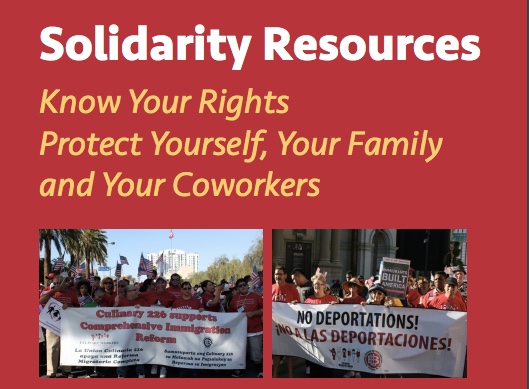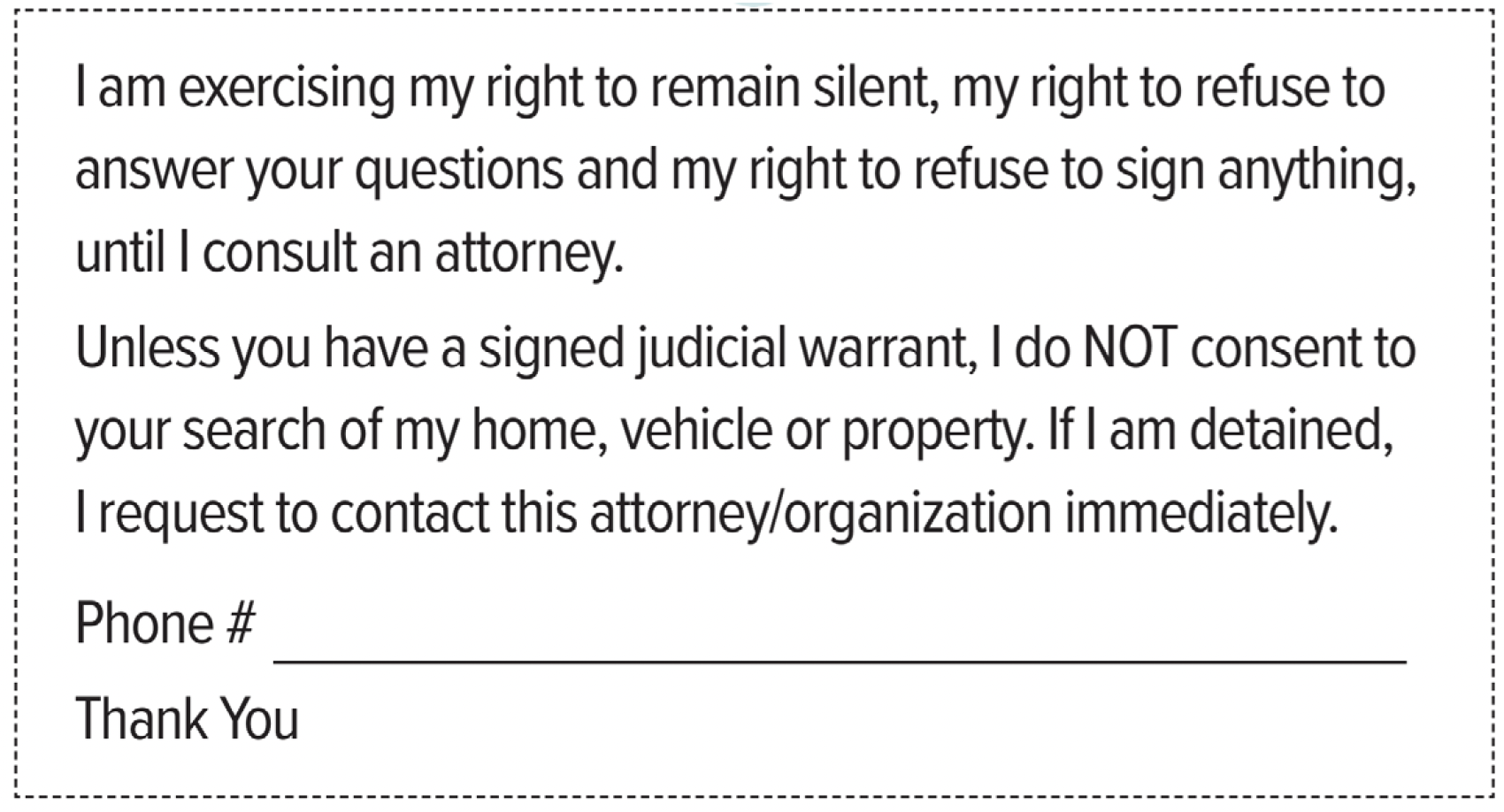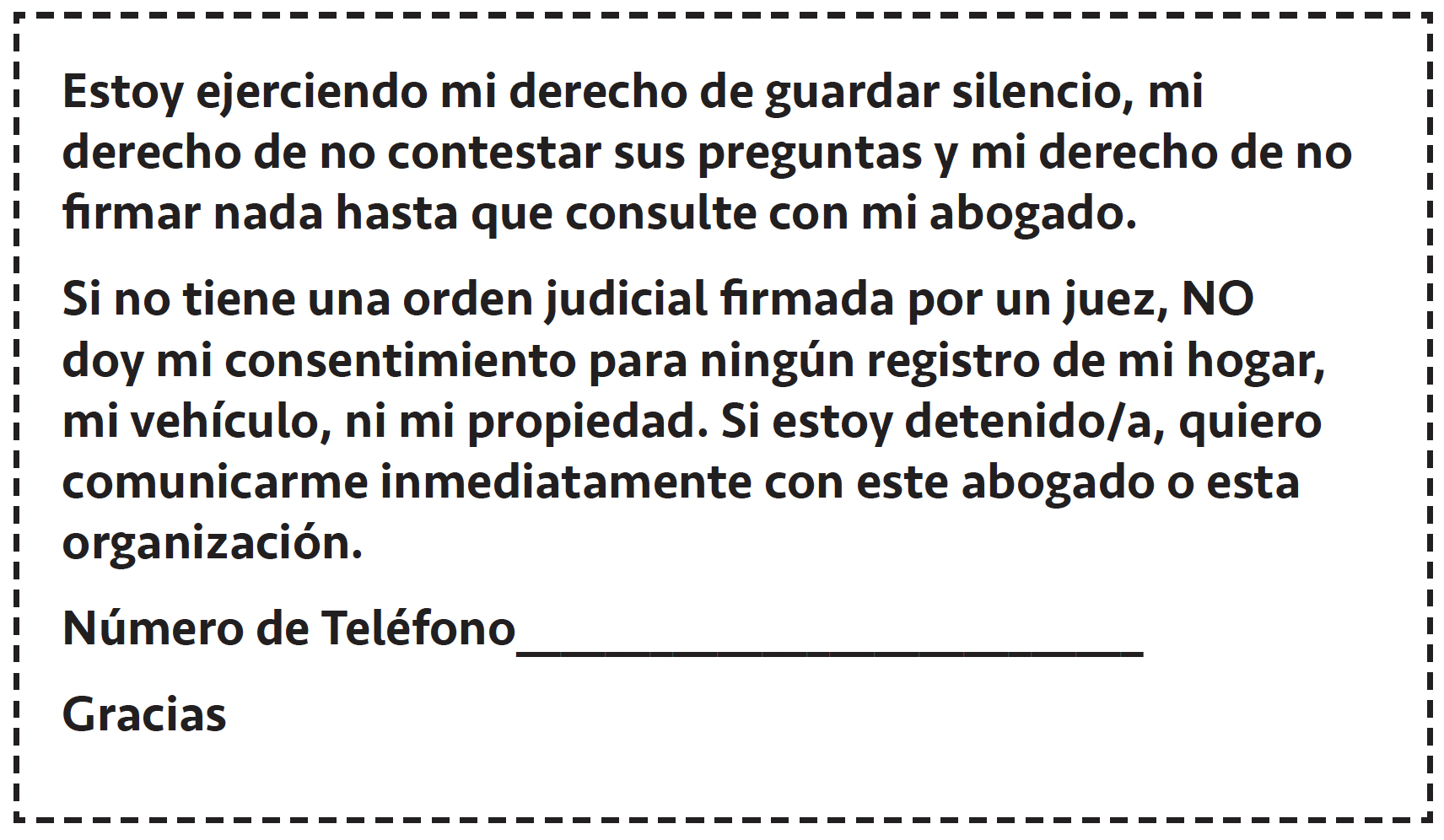
ENGLISH: Solidarity Resources: Know Your Rights, Protect Yourself, Your Family and Your Coworkers
Para leer la siguiente información en español, haga clic aquí: http://www.culinaryunion226.org/en-espanol/actue/conozca-sus-derechos
--
If ICE comes to your workplace or stops you in public, you have the right to:
• Remain silent and not provide information that can be used against you. Lying or providing false information can have very serious consequences.
• Speak to an attorney. By speaking to an attorney before you answer questions, you can make informed decisions about what to say and what information to provide.
• Not sign any document ICE presents to you. You have the right to speak with an attorney before signing anything.
• Leave if you are not being detained. You have the right to ask the ICE officer if you are being detained or are free to go. If you are not being detained, you have the right to walk away. Stay calm and do not run.
NOTE: In case of an ICE raid in your workplace, contact your union rep or shop steward immediately.
--
If ICE comes to your home, you have the right to:
• See a warrant BEFORE you open the door. You have the right to refuse to allow ICE or police to enter your home unless the officers show a court warrant signed by a judicial officer (usually a judge).
• A warrant from the U.S. Department of Homeland Security is never enough! You have the right to ask ICE to slide
the warrant under the door so you can inspect it. You do not have to open the door until they do. If it is an arrest warrant, it must be signed by a judicial officer and have your name on it. If it is a search warrant, it must be signed by a judicial officer and have the exact address of your home. If you open the door to ICE without a court warrant, this may be seen as giving “consent” to have your home entered and searched.
• Remain silent. Present the Rights Card at the end of this booklet to officers. If you talk about your immigration status, your country of origin or how you got to the U.S., this information could be used against you.
NOTE: ICE agents can and do lie in order to gain entrance to your home.
--
If you are stopped in your car:
• You have the right to remain silent, to speak to your attorney, to leave if you are not being arrested or detained, and to not sign anything without speaking to your attorney.
• If you are the driver of the vehicle, you may be required to show your license, registration and proof of insurance.
• Take note of which kind of law enforcement agent has stopped you (sheriff, city or county police, state trooper, or immigration officer), and the name and badge number of the agent.
Remember: Presenting false documents or false identification can lead to serious legal consequences.
--
Carry A Rights Card
Keep this card (and the phone number of an immigration attorney) with you at all times. These rights apply to everyone in the United States—carrying this card is an important reminder of those rights, especially for those of us in communities that face racial profiling by police or ICE.

